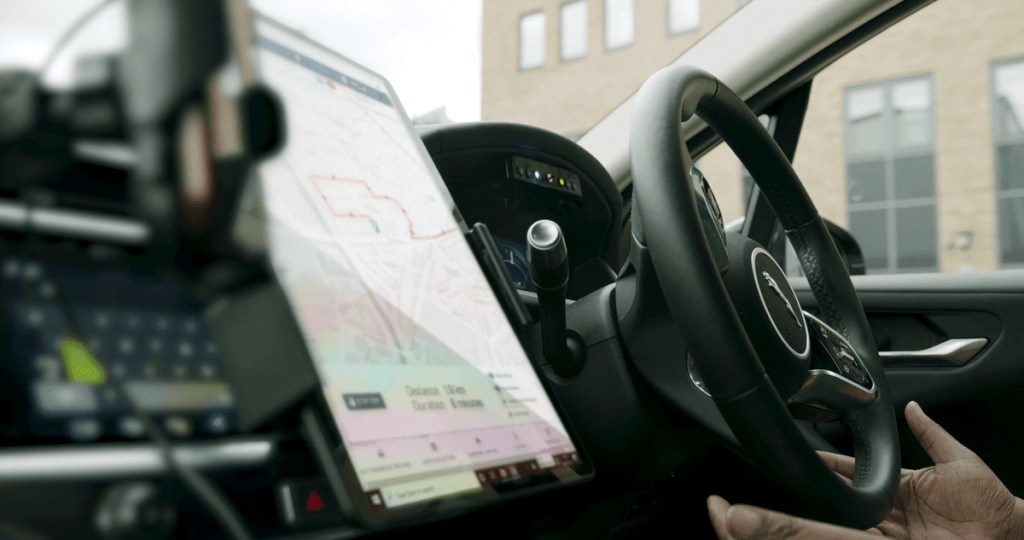Wayve, a U.K.-based self-driving startup that is notable for its use of deep learning and cameras rather than more-costly lidar and other sensors to guide vehicles, is gearing up for its next stage of development with a strategic backer in its pocket. Today Ocado — the online grocer that also powers online grocery systems for other retailers like Kroger in the U.S. — announced that it is investing £10 million ($13.6 million at today’s rates) in the startup.
The deal will give Ocado early access to London-based Wayve’s technology, which will be used in a trial in which Wayve’s hardware and software will be fitted on to Ocado vans and trialled for a year in real-world scenarios involving traffic congestion, making awkward turns on small residential streets and navigating complicated, non-grid street layouts.
Longer term, Ocado wants to use the technology across its wider global footprint: the U.K. company licenses its grocery picking, inventory and logistics technology, which it calls the Ocado Smart Platform (OSP), to other retailers around the world.
The deal is a two-way street in terms of data: Wayve will also be retrofitting Ocado vehicles with its computers and cameras to gather more data about delivery driving in general: the company’s big claim is that it doesn’t rely on costly lidar and other sensors to operate, and that this also means that it can be used in unfamiliar environments, but it still needs lots of training data for its machine learning to operate that system.
“Ocado Group has been driving innovation in global grocery logistics for decades. Their cutting-edge approach to grocery operations and international reach aligns strongly with Wayve’s culture and global ambitions,” said Alex Kendall, CEO of Wayve, in a statement. “I am incredibly excited to collaborate with Ocado Group and learn from their vast expertise. Globally, there is huge momentum to transform mobility in grocery operations right now. We are focused on delivering an autonomous last-mile solution to support the needs of grocery retailers everywhere. Through this partnership with Ocado Group we aim to unlock autonomous delivery faster in more places worldwide.”
The deal is non-exclusive on both sides.
On Wayve’s side, it is also working with at least one other big retailer in the U.K. — just last month, Asda (the U.K. superstore that used to be owned by Walmart but is no longer) kicked off a trial with the company. Records at Companies House show that Wayve has been working with Ocado for some months before now, so it seems like there was a small scramble between the two supermarket rivals to get the news out of their engagements.
Wayve has other strategic investors in the company: Virgin — the conglomerate that has stakes in a variety of businesses — in March announced an investment of an undisclosed amount in the startup. In total Wayve has disclosed more than $58 million in funding, with Yann LeCun, Balderton and Firstminute (Brent Hoberman’s VC) among the other investors.
On Ocado’s side, the company is hedging its bets with autonomous driving technology.
Earlier this year Ocado also invested a similar amount of funding in Oxbotica, which builds software to power these systems.
The two investments represent different approaches to solving the self-driving challenge.
“They are othogonal solutions, like an Android and iPhone,” Alex Harvey, chief of advanced technology, Ocado Group, said in response to our questions about how the two might work together. “They don’t work together but for us they represent two different ways to solving this very complex challenge which Ocado is committed to solving for its OSP partners at the earliest possible time.”
Given that both approaches are still some way away from full, real-world implementations, it’s important that we continue to see a variety of approaches at this stage to find the best and safest solutions (not just those that are the most cost-effective).
“Ocado is committed to being at the forefront of solving one of the most complex technological challenges of our age — automating last-mile deliveries in congested, busy, unstructured urban environments. We recognize there may be many different technical ways to solve this challenge,” Harvey said. “Our investment portfolio in the self-driving space reflects this ambition, giving us an unrivalled platform upon which to accelerate the development of this capability for our OSP partners.”
Aside from exploring the potentials of the different technological approaches, one other significant incentive for investing in Wayve is the fact that the startup’s system would be significantly less expensive to implement than one based around lidar and other sensors. (Wayve sells its approach as “AI software, lean hardware and fleet learning platform for AV 2.0″.)
Regardless which direction self-driving technology goes, this latest deal marks one more step for Ocado in building out its next generation of technology, and underscores how the company has placed autonomous systems at the heart of that strategy.
“Ocado is on a journey to develop highly intelligent autonomous mobility systems to further transform the operational economics, and proposition, of the Ocado Smart Platform for our OSP retail partners,” said Harvey in a statement. “We’ve been impressed with Wayve’s approach to solving this most complex of challenges and are excited to accelerate our capabilities so that our retail partners globally can take advantage of them at the earliest opportunity.”
Updated with comment from Ocado re: its Oxbotica investment and autonomous technology in general.































Comment